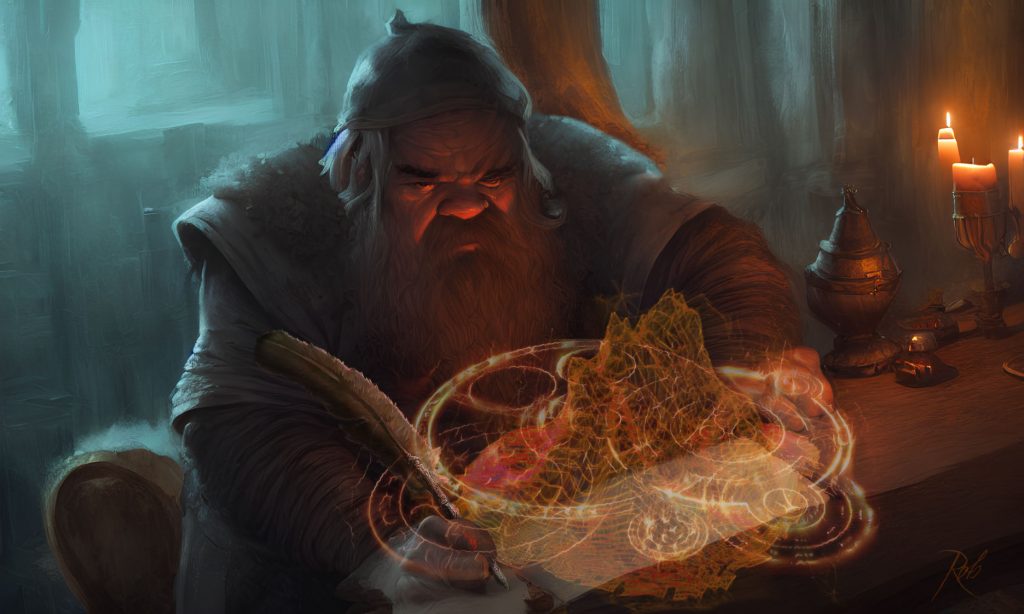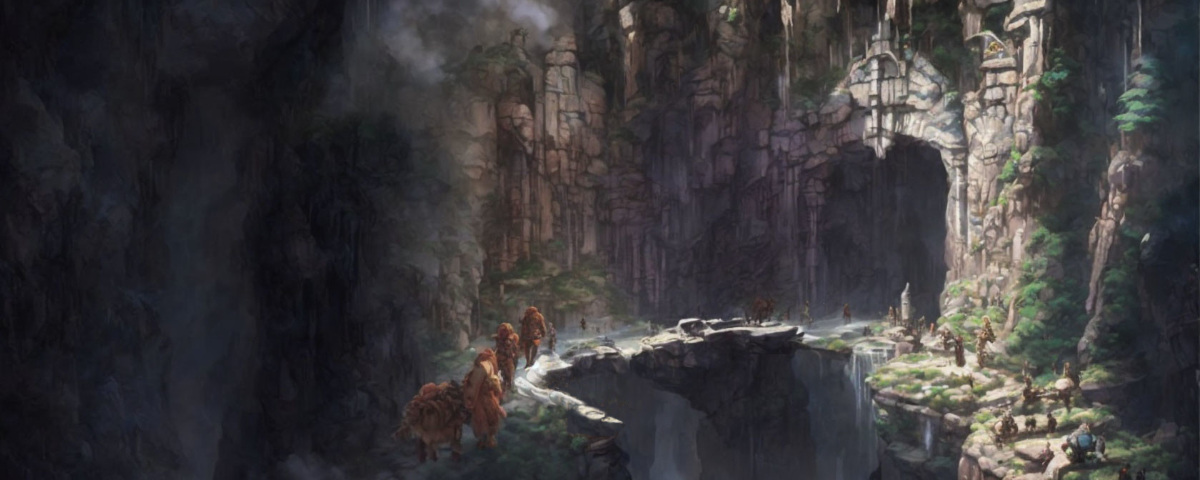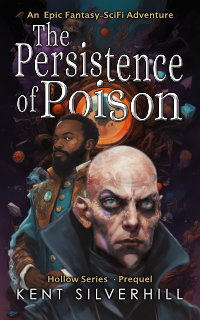Secrets wriggle in your mind like trapped worms.
Especially secrets so dangerous you can’t sleep at night.
Those sorts of secrets have a life of their own. They ache to be told, to creep into the light. To slither from the darkness where they’re buried.
This story begins with a secret.
The secret of a thing hidden. A terrible thing.
Only a handful of dwarves knew the secret though they never spoke of it, even amongst themselves.
But knowing that others bear the same burden as you makes it easier to withstand the urge to speak.
The years rolled by and the few who knew the secret passed away one by one. As each dwarf died, the burden grew heavier on those who remained, until, with the secret eating at his soul, it became too much to bear for the last.
It had to come out.
But where? Where could it go?
Not into the ears of anyone else, for that would mean it would live on.
But secrets don’t want to die.
There was only one thing he could do.
In the final few weeks of his life he poured out his heart onto parchment, drawing a detailed diagram – half map, half guide – that showed the location of that which he had sworn never to reveal. He drew it using a subtle magic method known only to dwarves, a technique they had used for centuries to map their underground cities and their mines.

It was done.
So why didn’t he feel relief?
He had told no one, but… had he broken his vow?
On his deathbed, he called his son nearer and waved everyone else from the room.
A single light-crystal glowing in a bracket by the door threw dark shadows across the old dwarf’s face. He motioned his son to come close. The younger dwarf bent down and put his ear near his father’s sunken mouth.
“I wanted to speak with you alone for I have done a great wrong,” said the old one, his breath sighing through the thin strands of his white beard. “You are the only one I can trust to make it right.”
“What is it, father?”
The dying dwarf’s chest labored with effort. He gathered his strength. “There is something hidden under the floor of this room. A casket. You must burn it. Burn it until no trace remains.”
The son’s eyes widened. “Why?”
The old dwarf lifted his head a fraction in his agitation. “Do not ask. It is dangerous. Very dangerous. Swear to me you will not try to open it. Just burn it and erase my shame!”
“I swear.” His father’s distress was so strong the son’s heart stirred with dread.
“Do it now. Let me go to my grave knowing it has been destroyed.”
The young dwarf took a chisel from his tool belt and levered up the flagstone indicated by his father. Under it lay a small wooden box.
“Take it and burn it! Let no one see you! Hurry back and tell it me it is done so I may die in peace.” The old dwarf sank back into the pillow, coughing.
His eyes blurred with tears, the son hid the casket under his cloak and took it to the surface away from Trithimor, the mountain home of the dwarves. He walked for an hour, as far as he dared, for he did not want to leave his father long.
In a secluded spot, he built a fire and then examined the casket as he waited for the flames to grow.
It was of oak bound with iron. The lid was close fitting, and the son’s eyebrows lifted at the strange sensation he felt as he ran his fingers across the symbol engraved in the hasp.
His father had not relied on a simple lock and key.
The casket was sealed by magic.
He shook it. He could hear nothing moving inside. What did it contain that would cause his father such pain?
But his promise overruled his curiosity. The fire was burning strongly, and he threw the casket into its flaming red heart.
His task done and anxious to return before his father died, he turned away and hurried for home.
When he had gone, a troll crept from the undergrowth and knocked the casket from the flames with a stick. Though the oak of the little box was charred, it was stout and the magically sealed lock still held. Try as he might, the troll could not open it.
Scared the dwarf might come back, he headed for his cave where he could force it open in peace.
While he crossed a stream, hopping from rock to rock, his foot slipped and he plunged into the icy water. Gasping and spluttering, the troll thrashed about and the casket fell from his grasp. The current swirled it away as he fought to stay afloat, for trolls are not natural swimmers. By the time he reached the riverbank, the wooden box was out of sight.
Carried by the stream, the casket came to a river which swept between pine covered foot hills. Hours later, the river widened. The current slowed, and the box drifted into the reeds which grew on a muddy bank next to a bridge.
A human merchant, passing by a few days later, led his thirsty mule down to the water and found the casket, fire blackened and coated with mud. Intrigued, he picked it up and tried, without success, to prise open the lid. He still had a long way to go to reach his home and didn’t want to stop for longer than he needed, so he tucked the box into one of his mule’s panniers and continued his journey.
When he got home, he instructed his servants to unpack while he went to greet his family. The servants marveled at the fine jewelry the merchant had bought from the dwarves. When they found the charred, muddy casket they tossed it to the back of a shelf in a corner of the warehouse where it lay forgotten for many years.
— Extras —
Read more about Daphne’s world:

